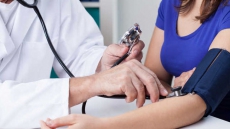Researchers at the University of Bristol have found evidence of an association between generalised anxiety disorder at age 18 and harmful drinking three years later.
The study, published in the journal Drug and Alcohol Dependence strengthens the evidence for a relationship between anxiety and later alcohol use as the researchers accounted for other factors such as adolescent smoking and cannabis use, and parental anxiety and alcohol use.
"Helping adolescents to develop positive strategies for coping with anxiety, instead of drinking alcohol, may reduce the risk of future harmful drinking. However, we cannot determine if the relationship is causal, because we used an observational study design," said Maddy Dyer.
Using questionnaire and clinical interview data from more than 2,000 participants, researchers found generalised anxiety disorder at age 18 was linked to frequent drinking, frequent bingeing, hazardous drinking, and harmful drinking at age 18.
Generalised anxiety disorder continued to be associated with harmful drinking at age 21.
Drinking to cope was also strongly associated with more harmful drinking, but it did not appear to influence associations between anxiety and alcohol use.
Harmful drinking was measured using a special test developed by the World Health Association.
On average, adolescents with anxiety drank at more harmful levels regardless of whether they tended to drink alcohol for coping reasons or not.
"Our own research has shown that links between mental health problems, such as anxiety disorders, and alcohol are common and complex," said Mark Leyshon, Senior Policy and Research Manager at Alcohol Change UK.
For example, anxiety can be both a result of stopping drinking and a risk factor in beginning to drink too much, as this new study suggests.
"We need more research to help us better understand the connections between alcohol and mental health, as well as high-quality, accessible, integrated support for substance misuse and mental health issues," Leyshon added.





